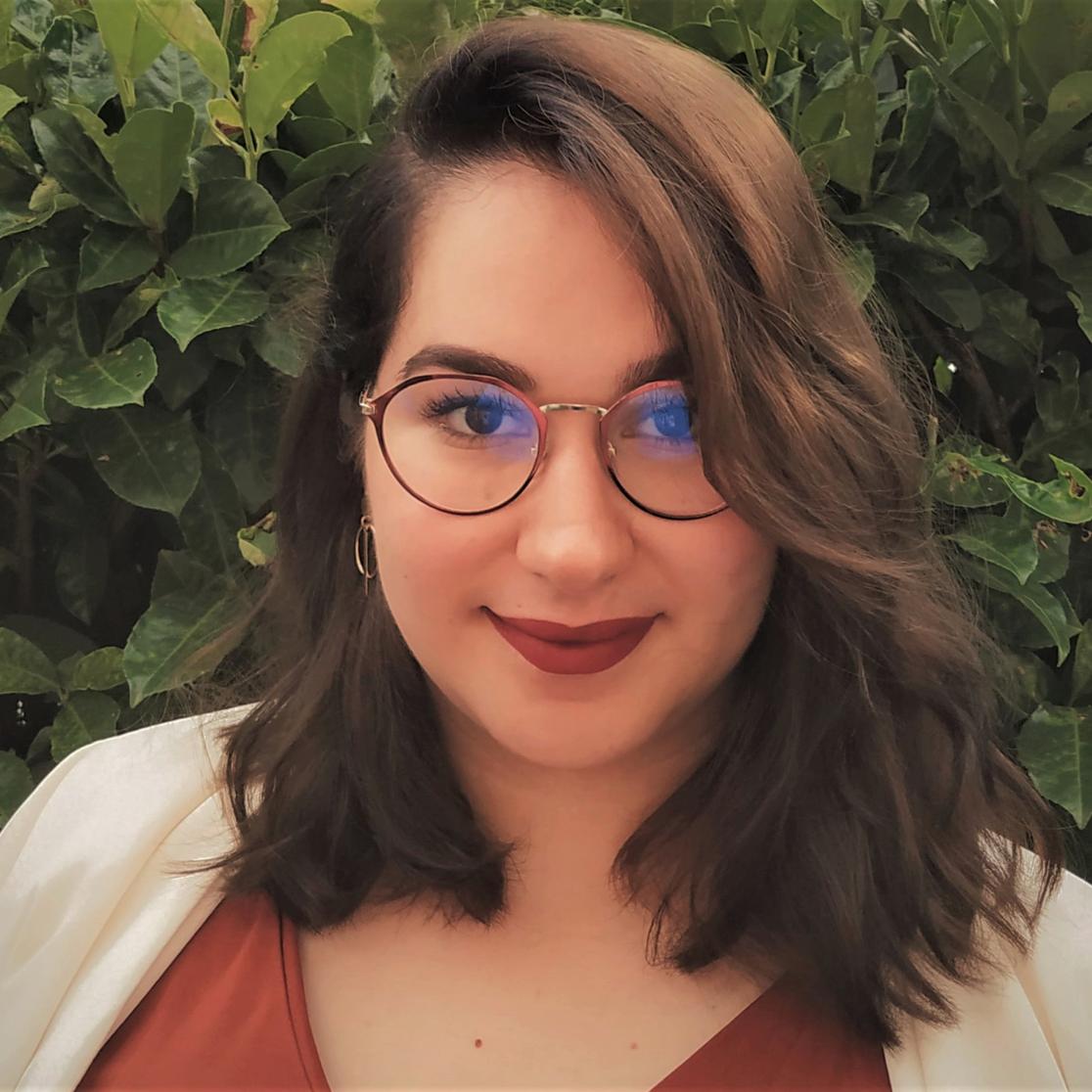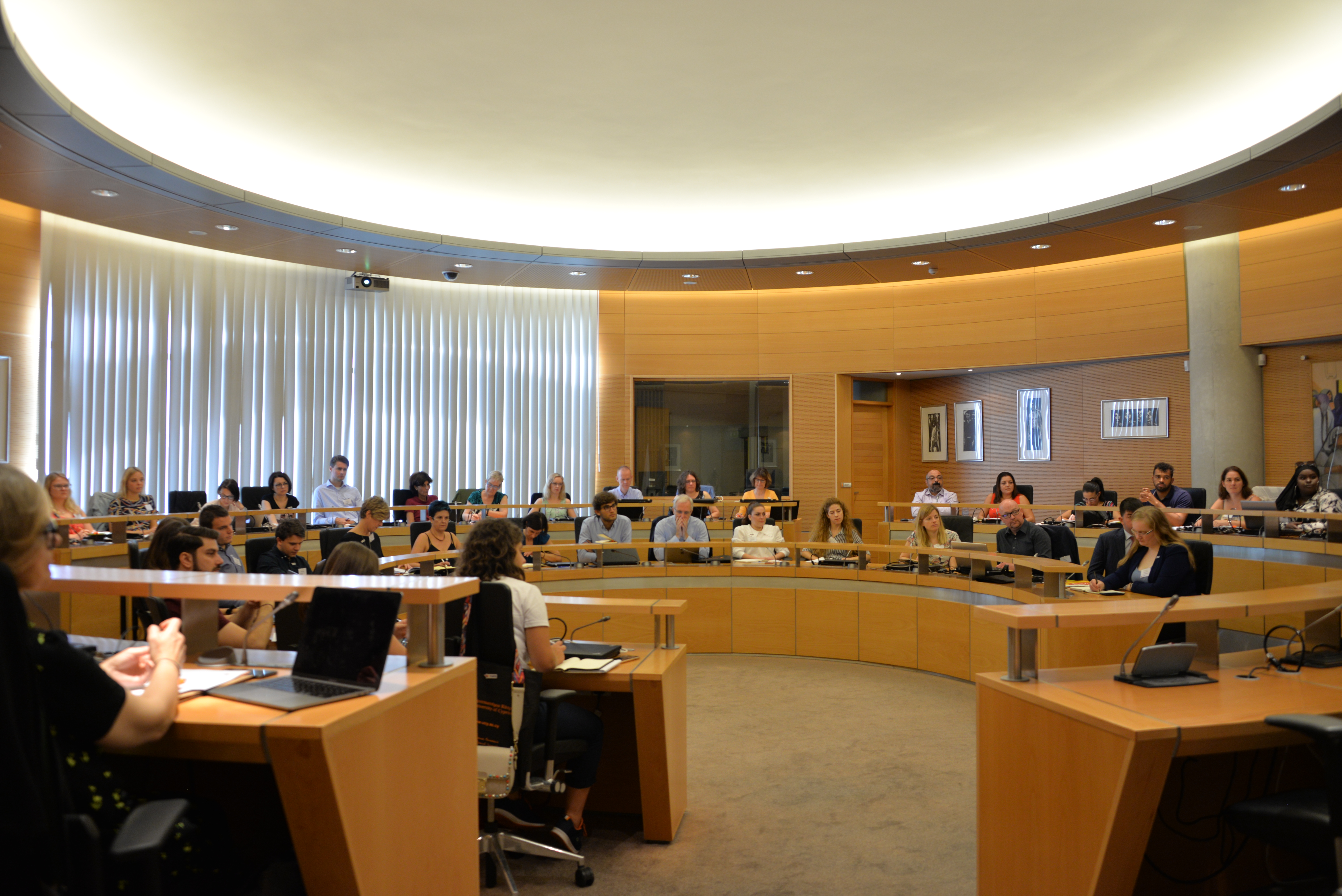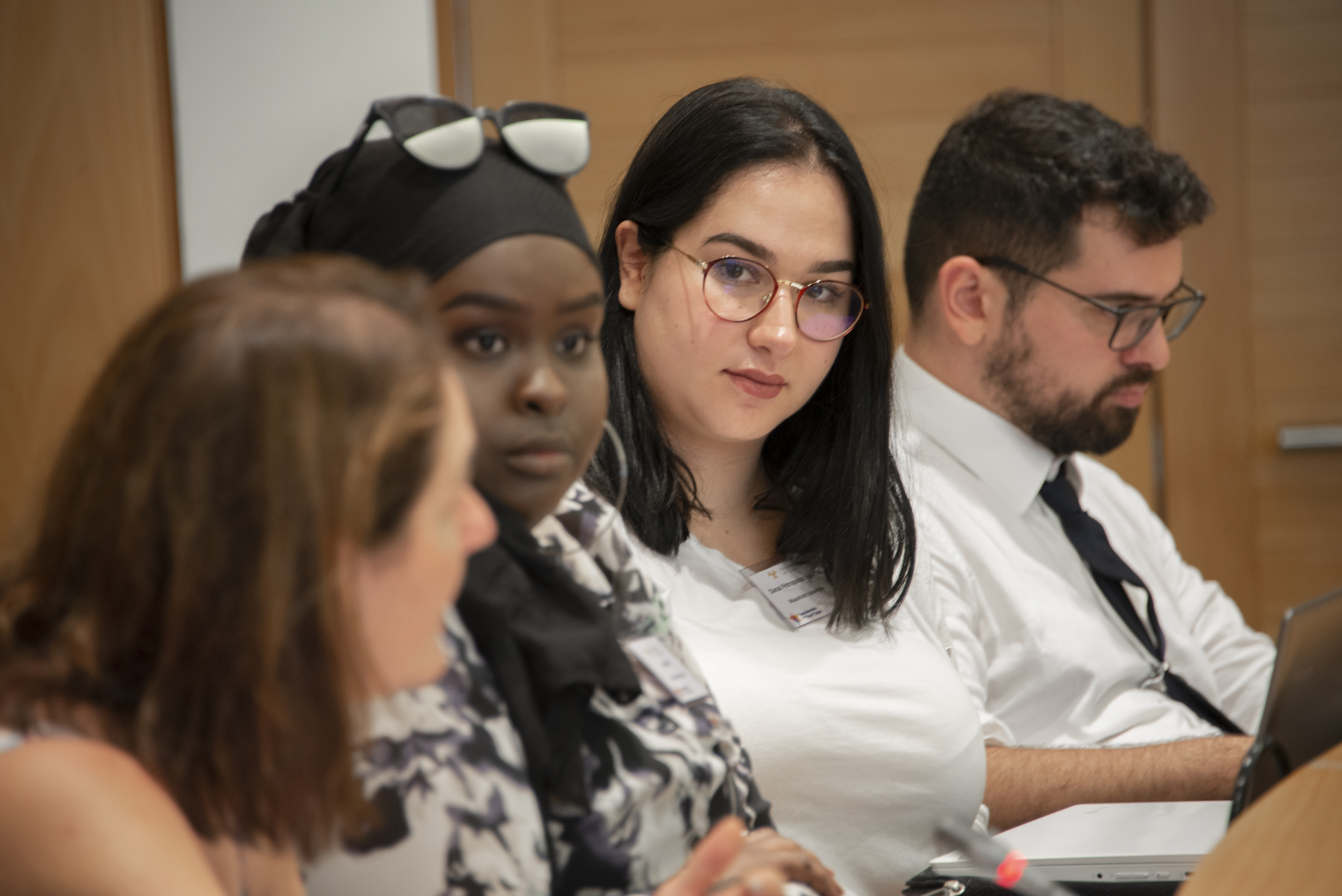YUFE - legwork and lofty ambitions
Studying in ten different countries in a university that transcends geographical, political, linguistic, and disciplinary borders? The alliance Young Universities for the Future of Europe, under the leadership of Maastricht University, has won funds to create a European university. Now begins the frantic race to realise this aureate ambition. And UM students have a role to play…
“It’s a colossal challenge but UM is well equipped to take it on because of our experience handling diversity.” Danai Petropoulou Ionescu is one of the two student representatives from Maastricht University, who will gather students’ feedback and present it to YUFE’s board. “It’s a really international community here. People are open to discussing uncomfortable things and embrace other perspectives – and I get the same feeling from our partner universities.”
Student-centered
Danai was a student in the bachelor’s programme Arts & Culture when she heard about YUFE, then only an ambition. “I loved the idea from the beginning, so I got involved as FASoS’ student representative in a think tank that helped develop the concept.” YUFE is very much student-centred. “I really like the fact that we were involved and taken seriously from day one.”
Back then, it seemed as though a lot of water would run down the Maas before the vision YUFE was to become a reality – but now the clock is furiously ticking down to September 2020, when the first cohort of students is set to start. “We’ve had a lot of student input whilst developing the idea and I think we will have a big role in improving the programme after the pilot stage.” Danai certainly enjoys being involved in such an innovative project.

Non-elitist
In particular, she was inspired by YUFE’s determination to not be an elitist project. Indeed one could object that European mobility is already a reality for those with the right connections and necessary funds for tuition fees, language courses, accommodation, travel, etc. “The focus on equal opportunities is close to my heart – I don’t come from a rich family… If I’d had an opportunity like YUFE at the beginning of my studies, I’d definitely have taken it!”
The YUFE partners are dedicated to equal opportunities and diversity. They are exploring ways of providing accommodation, social projects and internships. True mobility, in the sense of integrating into the current place of study, is integral to the programme. “Such an educational area without borders is a marvellous aspiration and a step towards creating a real European community.”

Freedom of movement
The situation in Britain is a reminder that freedom of movement – unironically enough – is far from steadfast. “I think YUFE can be a counterforce to the isolationist tendencies we see in Europe and the world.” While mainstream populism conceives of mobility as a threat, YUFE deems it beneficial, not only for those moving through Europe but also for the communities into which students will try to integrate.
There are of course some parallels to the ERASMUS programme, which has done a lot to make real an idea of Europe often stuck at the police stage – but in a limited way. “ERASMUS has the same promise of mobility but without the obligation to work and contribute, which limits it to people who have the necessary funds. It’s a great first step to prepare the way for a project like YUFE, which adds another dimension.”
"Ecco." "Kiitos." "De nada."
“YUFE makes European mobility integral.” Even though students only have a limited time to experience how other institutions, cities and cultures work, the learning-goals are ambitious. Language, one of YUFE’s pillars, is a good example of how ideals are balanced with realism. “You need language in order to understand how the society you want to contribute to functions – but you don’t have to master it completely to understand how people think.”
While no grand act of communication, a “howdy” in the local language can punch a tiny hole into the wall separating nations and social classes. After all, it’s not about writing villanelles in Finnish but about crossing cultural borders. “I speak very little Dutch and everyone here speaks English really well anyways. Still, I get the idea that interactions are a lot nicer if you can say a couple of words in Dutch. The effort brings people closer.”

Ideas travelling across borders
YUFE’s approach not only benefits the students and host communities: “A lot of people who are in a similar position to me actually plan to go back and apply what they have learnt living abroad. A kind of best practice sharing…” The individual as a conduit for education and new perspectives and ideas – YUFE would not only help develop innovative but also allow solutions to travel and transform.
Danai is excited to help turn beatific buzzwords like mobility and diversity into a practically implementable plan. “I really look forward to all the nitty gritty necessary to ensure that people will have e.g. equal access.” She’s just returned from a YUFE meeting in Essex, so her reality is already becoming more European. “It’s a very fresh, really open collaboration – it’s great to work together and make this become a reality.”
Also read
-
Andrés Caceres Solari on No room for Human Rights in Gaza and Ukraine: How the Law Legitimizes Urban Devastation
Pick Our Brains Session with Andres Caceres Solari

-
AMIBM hosts the final Realise-Bio conference
The Aachen Maastricht Institute of Biobased Materials (AMIBM) hosted last week the third and final Realise-Bio annual conference, bringing together the Dutch and German bioeconomy ecosystems at the Brightlands Chemelot Campus.

-
Macrophages as key to treating liver fibrosis
Sabine Daemen is researching how certain macrophages can slow down fatty liver disease and fibrosis in order to develop new therapies.
